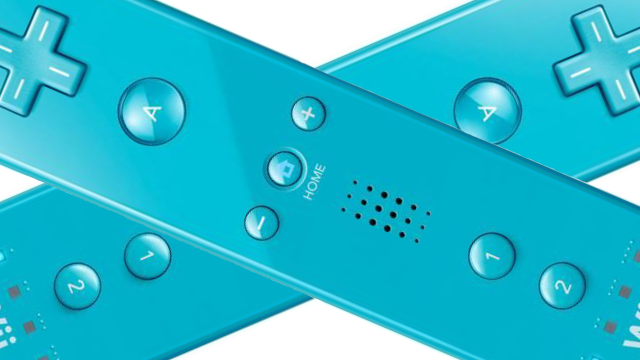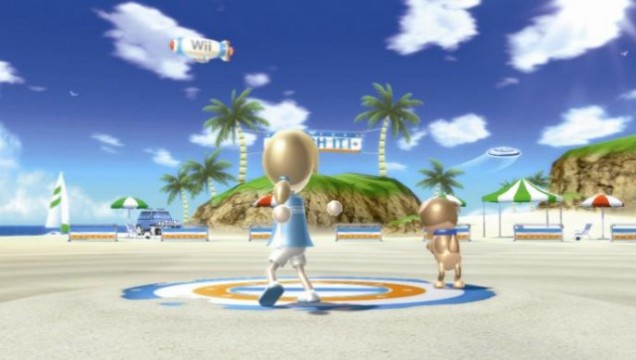
|
The release of Pandora’s Tower in North America was a special event, not because it was the culmination of Operation Rainfall’s heroic attempt to get three of Wii’s most prominent JRPGs localized (though that was certainly noteworthy in its own right), but because it marked what was presumably the last major release for the aging console. Barring any future movie tie-ins, it looks like Nintendo’s fifth-generation platform is now ready to ride off into the digital sunset. But before it takes its rightful place in gaming history, the staff wanted to bid the console one final farewell with a week-long tribute. Five writers, offering five different perspectives on the system, celebrating its impact on the industry and looking back on some of the gaming classics it’s spawned since its release. We hope you enjoy!
When I look back at the consoles I’ve owned, I like to think about the time in my life that they reflect on. The GameCube came out when I was a junior in high school, when I had the most disposable income I’ve ever had in my life. I had my first job, no car and no girlfriend. And, most importantly, I had no bills. I bought more games during that generation than in any before or after. I played everything, including a few games I’m embarrassed to admit I owned. But, times change. When the Wii came out in late 2006, I’d been in college a few years. I had bills. A girlfriend. And, shortly into the system’s lifetime, I would have my first “real” job. Suddenly, I just didn’t have as much time or money for games. And this is why the Wii was the perfect system for me.
These days, the term “casual gaming” is more loaded than a baked potato in a steakhouse. When we hear it, it stirs up frightening imagery of shovelware and discount bins at Walmart. But, as my mid (and now late) 20s hit, I started to realize that I didn’t have as much time for 40-hour epics any more. If I had time to play a video game, sometimes it was an hour a day. Maybe only 20 minutes. Or maybe I wouldn’t have time to play for a few days. The two and a half hour gap I had between 8th period in high school and my 5-9 shift making tacos was now gone. I had responsibilities. So I started to embrace games that I could sit down with for short bursts and still feel accomplished. And the Wii had a plethora of those types of games. And, while some people see that as a bad thing, I’m here to argue otherwise.
The Wii’s pack-in game (and its follow-up) will always be the one most associated with it. And, with good reason. Wii Sports showed us exactly what the Wii could do and it leveled the playing field so that the casual and hardcore could all play together. For years, one of my favorite watering holes even had the game set up so patrons could play bowling or tennis between beers. That’s the closest thing I’ve had to an arcade experience since the early ‘90s. But one of my real favorite moments playing the Wii was the day my then 8-year-old goddaughter kicked my butt in Wii Sports Resort. To this day, I still think the Wii Sports games are a lot of fun. But the Wii had more than just that.

The Wii reintroduced me to an old friend: the sidescroller. There had been plenty of sidescrollers between the Super NES and the Wii, but, for the first time since those halcyon days, I felt like these games represented the better franchises in gaming. Nintendo put a lot of focus into rebuilding that fallen genre, and my love for it was rekindled. Suddenly, we had games like New Super Mario Bros. Wii, Donkey Kong Country Returns, Kirby’s Epic Yarn and Rayman: Origins. When I’d sit down for a half an hour with these games, I’d walk away feeling accomplished. I’d have a few levels under my belt, and I wouldn’t have to worry about feeling lost if I couldn’t come back to it for a few days.
It wasn’t just sidecrollers and “waggle”-centric titles, though. The Wii had games like Wii Fit, where I felt like I was multi-tasking. Not only was I gaming, but I was working on shedding a few pounds, too. I fell in love with third party titles like DJ Hero, Tatsunoko vs. Capcom and House of the Dead: Overkill where I could just sit down and have a little fun for a few minutes. I still loved sprawling epic games like The Legend of Zelda: Twilight Princess, Super Mario Galaxy and Metroid Prime 3, but I was thankful to have so many other options for the time-impaired.
During the days of the Wii, “casual” became a 4-letter word in this industry. There was this sudden fear of games that were easy to pick up and play. Gamers were now insecure about their console of choice and whether it was “hardcore” or not. But someday, we’re all going to have a few more responsibilities than we’re used to. It doesn’t mean we have to stop playing Zelda. It just means that it’s okay to have something else we can pick up for 20 minutes before bed. And that’s why I loved the Wii. Because it let me do both.




 ShareThis
ShareThis








What made the Wii so momentous was that it married the “casual” with the “hardcore” so well, it ultimately ended up creating one of the most fulfilling and satisfying console runs since . . . well, ever.
I had just gone through the Gamecube run with Nintendo – and while I certainly wasn’t upset at them for it – it really felt as if they only put half their heart into it. While the Gamecube itself had many great ideas and titles – it had no momentum outside of itself, even within its own industry. When standing around my PS2 and X-Box buds, I would always discuss the PC titles I was playing. Anything Nintendo I would bring up would just require an explanation of what it was, how it worked, or where it came from.
So, with the Wii, I figured that I was going to sit back and maybe pick up a machine a couple years in. Once the prices had dropped, the titles had accumulated, and I could see what I was actually dealing with. No sitting back and hoping they release a second RPG worth playing over five years, like with the N64. No sitting back and hoping they take their online commitment seriously and . . . release a second game for it, like with the GameCube. No, following Nintendo down their preferred path often led through a confusing, stumble-based, forest-of-the-dark adventure, where I came out at the end with twigs and branches sticking out of my shirt, and Nintendo standing in the front with all my money.
This time was going to be different. I was going to be an actual customer. Not a loyalist.
Then the Wii explosion happened. And everyone, literally, EVERYONE EVERYWHERE was playing on the thing. Not only that – it actually brought something new to the table – a proposition considered so risky in this industry, titles which have the number “4” following them are considered new and fresh properties.
People actually started talking to ME about the Wii – under the premise that I like to play video games. The conversation wasn’t about the PS3 or the 360 – people wanted to know if I had actually played this thing.
Well, alright I said. You’ve got the world talking. That hasn’t happened in . . . more than a decade. So, I went to my local video game store, and discovered that alongside a NEW Zelda game, they had made a NEW Metroid game as well. My eyes popped. Usually that kind of release schedule takes Nintendo three years to pull off. It almost felt like they were . . . actually coming to play this round!
And the momentum society continued to give it, alongside the superb release schedule of titles everyone would recognize (two 3D marios, a 2D Mario and Donkey Kong, two Zeldas, two Metroids, Smash Bros., Mario Kart, etc. etc.), really gave the enterprise a sensation of legitimacy. Nintendo wasn’t sitting back and deciding which games North American’s wouldn’t get while we were currently getting none – no, the flood gates were open.
And they opened quickly. Within the first two years of the machine, I remember almost every key franchise having stuck its pole in its ground.
So, the idea that the “casual” somehow corrupted this system is, realistically, quite ridiculous. With the amount of overwhelming support the machine saw – no doubt there would be shovel-ware included. That’s just a pre-condition for any leading console of the market. The good part of this was that it signalled, quite clearly to able-bodied 3rd party developers, that the Wii was open for business. So we got a lot of titles that would no doubt never appeared had it not been for the “casual market” buying the machine in unprecedented numbers.
People so eagerly lighting the straw-men of “too many casual-titles” quite frankly just don’t know how the market works. I would argue that it’s almost a complete no-brainer that the Wii’s library would have looked completely different had the public not shown such overwhelming interest. Blaming the “casual market” for anything regarding the Wii is ridiculous – because, quite frankly, if it weren’t for them, the Wii -WOULD- have disappeared into the PS3/360 din without so much as a whisper.
You have to remember – the previous two generations saw a drastic decline in the number of consoles they were able to move out onto the market. If they were to continue that trend with a third generation – it would have been, “Mario? Mario . . . who?”
So yeah, really, thank you casuals. Thank you for allowing Nintendo to remain main-stream and current. Thank you for allowing a great plethora of titles onto my system that would have otherwise gone to the competition. Thank you too, for showing that there is still great profitability in innovation.
One of Nintendo’s fiercest and most endearing traits.